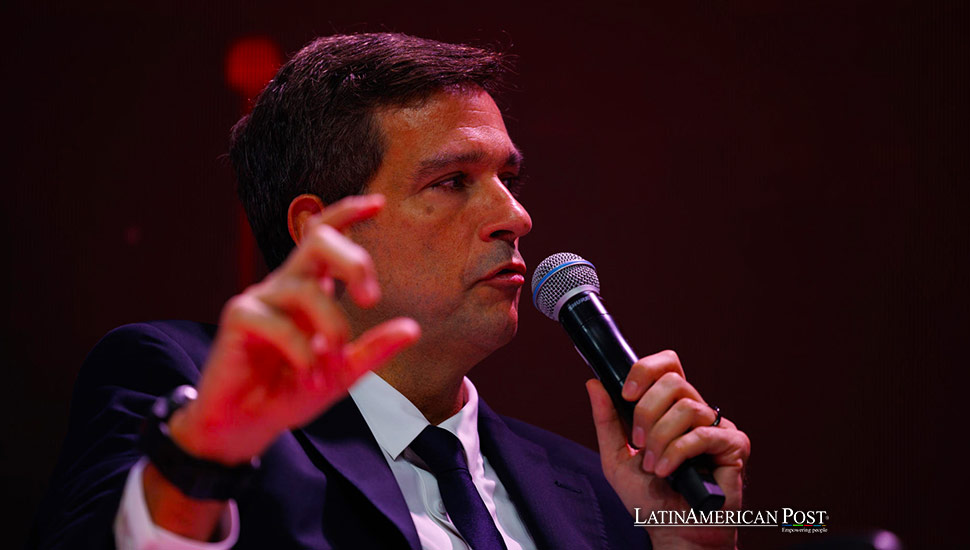Brazil Lowers Inflation Expectations and Expects Economic Stability

As Brazil grapples with economic challenges, central bank chief Roberto Campos Neto emphasizes stabilizing inflation expectations. Addressing recent concerns about deviations from official targets, Campos Neto outlines the path forward for Brazil’s economic policy.
Brazil’s economic landscape is currently marked by fluctuating inflation expectations, and a central bank is committed to stabilizing the nation. Roberto Campos Neto, the central bank chief, has recently articulated the complexities and optimism surrounding these inflation concerns. At an event organized by the business group Lide in São Paulo, Campos Neto provided insights into the factors influencing inflation and the measures undertaken to stabilize expectations.
In their weekly surveys, private economists have adjusted their inflation expectations upwards to 3.86% for this year, 3.75% for 2025, and 3.58% for 2026. These figures are notable deviations from the government’s official target of 3%. Campos Neto pointed out that the reasons behind the unanchoring of inflation expectations are multifaceted but emphasized that these expectations should stabilize and improve over time.
Historical Context of Brazil’s Inflation
Brazil has a storied history of battling inflation. The country experienced hyperinflation in the 1980s and early 1990s, leading to economic reforms, including the introduction of the Real Plan in 1994. This plan, which created the current Brazilian currency (the real), was crucial in stabilizing the economy and controlling inflation.
However, maintaining low and stable inflation has remained a persistent challenge. Economic shocks, political instability, and external factors have periodically disrupted Brazil’s inflation targets. The central bank’s ongoing efforts to manage inflation are part of this long-standing struggle to ensure economic stability.
Current Economic Strategies
Campos Neto highlighted several key factors affecting inflation expectations, including uncertainties about Brazil’s monetary and fiscal credibility. He stressed that policymakers’ decisions are grounded in technical analysis to reassure the public and markets about the central bank’s commitment to its inflation targets.
One of the significant points raised by Campos Neto was the recent discussion about potential budget deindexation. In Brazil, many mandatory public expenditures are tied to specific growth rules, challenging budget control. Deindexation could give the government more flexibility in managing public finances, potentially leading to better fiscal outcomes and more stable inflation expectations.
Recent Monetary Policy Decisions
Earlier this month, the central bank made a split decision to cut interest rates by 25 basis points to 10.50%, following six cuts of twice that size. This decision underscored the board members’ unanimous recognition of unanchored inflation expectations as a critical factor. Despite the division within the central bank, Campos Neto assured that the decisions are technical and aimed at long-term economic stability.
Campos Neto also mentioned the correlation between labor-intensive services and price increases, describing the movement as “incipient” and requiring further analysis. Understanding this correlation is essential for the central bank as it seeks to balance economic growth with inflation control.
Future Outlook and Policy Implications
The central bank’s actions and communication strategies will be pivotal in aligning public and market expectations with policy objectives. Campos Neto’s emphasis on the technical nature of monetary policy decisions aims to build trust and credibility, essential for effective economic management.
Brazil’s journey towards economic stability is fraught with challenges but also opportunities. The central bank’s efforts to manage inflation expectations and potential fiscal reforms could pave the way for a more resilient economy. By drawing on historical lessons and adapting to current realities, Brazil aims to achieve its economic goals and ensure long-term prosperity.
Also read: IATA Challenges Brazil on High Jet Fuel Costs, Seeks Change
Brazil can navigate its economic challenges through strategic policymaking and effective communication and build a stable, prosperous future.





